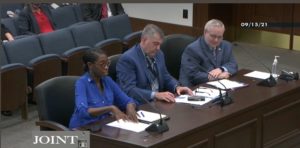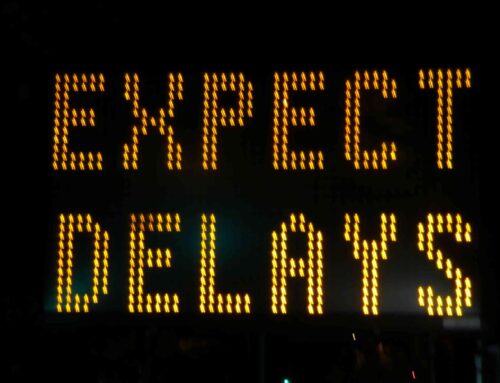U. of Memphis withdraws proposal to inspect cell phones, charge when someone takes picture of public record
 The University of Memphis has withdrawn a proposed rule that would have required public records requestors who took pictures of public records to hand over their phone so the university could check it for what they photographed and would have allowed the university to charge the person a “production cost” even though the university itself did not produce the copies.
The University of Memphis has withdrawn a proposed rule that would have required public records requestors who took pictures of public records to hand over their phone so the university could check it for what they photographed and would have allowed the university to charge the person a “production cost” even though the university itself did not produce the copies.
The rule was before the Joint Government Operations Committee last week where lawmakers pushed back on this section:
(6) A requestor will be allowed to make copies of records with a personal electronic device (portable printer, camera or a cell phone) so long as the requestor allows the PRCC (public records request coordinator) to review the electronic device for purposes of confirming what documents were copied. If the copies exceeded the $25 fee waiver production cost, the requestor will be required to pay either the full or a pro rata share of the production cost.
The University of Memphis originally proposed a rule amid of wave of state agencies doing the same in 2018 and 2019 after a new law required the agencies to promulgate public records rules meeting new standards. The university’s original proposal met resistance in the joint operations committee in 2019 and the rule proposed this year was a second try.

University of Memphis general counsel Melanie Murry tells the Joint Government Operations Committee that it will change its proposed rule and will not charge people for taking pictures or public records or require that the university be allowed to inspect the citizen’s personal device after they take pictures.
Government agencies have squabbled with citizens over taking pictures of public records or making copies with personal equipment. Some government entities prohibit photo-taking because they want to force someone to request that the government make the copies, which allows them to charge fees. Under Tennessee law, a person who inspects records and does not request copies from the government does not have to pay anything.
State agencies that have tried to adopt rules to prevent citizens from taking photos of public records have been turned back in the Joint Government Operations Committee by lawmakers who are passionate about public records access, including Sen. Mark Pody, R-Lebanon and Sen. Mike Bell, R-Riceville, among others.
The university’s new proposal allowed a person to take photos of a public record but proposed to charge the person a “production cost” anyway, presumably hourly labor charges for finding the records and reviewing them for possible redactions. It also allowed the university to review a person’s device to see what was on it.
Tennessee Coalition for Open Government opposed the measure and sought a follow-up opinion from the Office of Open Records Counsel, which previously had opined that government entities could adopt reasonable rules that could limit a person from making their own copies of records.
OORC: Government can’t charge when someone takes photos of public records during inspection
Open Records Counsel Lee Pope still maintains that a government entity can prohibit someone from taking a photo of a public record under certain circumstances.
But Pope said in an email to me on Sept. 14 that the law does not authorize a governmental entity to charge a person production costs if a person does make their own copies while inspecting public records:
While Tenn. Code Ann. § 10-7-506(a) authorizes a governmental entity to adopt rules governing how a citizen makes copies of public records during inspection, it does not appear to authorize a governmental entity to charge a citizen for copies of public records made with personal equipment during inspection. The TPRA provides that “[a] records custodian may require a requestor to pay the custodian’s reasonable costs incurred in producing the requested material and to assess the reasonable costs in the manner established by the office of open records.” Tenn. Code Ann. § 10-7-503(a)(7)(B)(i). As such, our Schedule of Reasonable Charges generally permits a governmental entity to assess reasonable costs associated with a governmental entity producing copies of public records for a requestor. However, if a requestor is making their own copies with personal equipment during inspection, it doesn’t appear a governmental entity would actually be incurring any costs associated with the production of those copies. Accordingly, although a governmental entity may adopt rules governing how a requestor makes copies during inspection, we don’t believe a court would find that a governmental entity is permitted to adopt rules charging requestors for making copies of public records with their own personal equipment during inspection.
U. of Memphis to resubmit rule allowing photos at no cost
Last week, Melanie Murry, the general counsel for University of Memphis, told the Joint Government Operations Committee that the school would withdraw the rule and start over, replacing the section that caused problems.
Murry said the language about inspecting someone’s phone or personal device would be removed as well as language that TCOG had objected to on the plan to charge someone.
A proposed new rule will be filed with the Secretary of State and heard again by the same committee.
The University of Memphis wasn’t the only government agency before the operations committee last week. Austin Peay University also proposed its new public records rules.
Austin Peay’s rule states that a requestor may use a personal cellphone to take pictures of records when the total amount of pages to be photographed does not exceed 20 pages. Pody said he objected to the limit, but when he questioned Austin Peay’s attorney, Corey Harkey, she admitted that nothing stopped a person from photographing 20 pages, then another 20 pages later.
Harkey emphasized that Austin Peay’s rule did not have the same language as the University of Memphis about inspecting someone’s phone. And she said she understood that a person who took pictures of public records during inspection could not be charged any labor costs.


